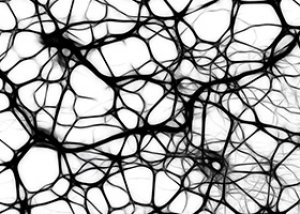
All iLive content is medically reviewed or fact checked to ensure as much factual accuracy as possible.
We have strict sourcing guidelines and only link to reputable media sites, academic research institutions and, whenever possible, medically peer reviewed studies. Note that the numbers in parentheses ([1], [2], etc.) are clickable links to these studies.
If you feel that any of our content is inaccurate, out-of-date, or otherwise questionable, please select it and press Ctrl + Enter.
Newborn neurons play a role in sedation
Last reviewed: 02.07.2025

New nerve cells have the ability to calm the brain and neutralize the effects of stress: scientists have proven.
The brain of animals has certain zones in which nerve cells appear throughout life. Similar zones exist in the human brain, although this fact causes much controversy and doubt in the scientific community.
New neurons in adults are formed in small quantities, but this process is extremely necessary: newborn structures provide the most important processes of memorizing information. In addition, they strengthen the brain in relation to stress, although until now it was unknown what specific reactions occur at the level of cells and impulses.
Scientists from Columbia University conducted an experiment on rodents. They observed the formation of new neural structures in the hippocampus (this is the area where neurogenesis occurs). The hippocampus, in addition to many functions, is the main center of memory.
In response to antidepressants and physical activity, the number of new neural structures increased. And when neurogenesis was suppressed, the rodents became more susceptible to stress and expressed increased anxiety.
With normal neurogenesis or with its artificial enhancement, stress in rodents was relieved faster, they demonstrated better adaptation to new conditions. By this, scientists confirmed the anti-stress effect of neurogenesis.
But scientists needed to know what processes were taking place in the cells. After assessing the state of old and newborn nerve cells, the researchers discovered that with a decrease in the number of new neurons in the hippocampus, old cells become more active, and with an increase in the number of "newborn" structures, old cells become calmer.
If the nervous structures were affected directly from the external environment, by stimulation or suppression, then the rodents' response to stress was the same as with stimulation or suppression of neurogenesis. Thus, with forced excitation of old cells, mice acquired greater stress sensitivity, and with suppression of their activity, mice independently and quickly coped with stress.
In other words, the old-timer neurons of the hippocampus (namely, the dentate gyrus, where new structures are formed) play a direct role in the development of a reaction to a stressful situation. And in order for such a reaction to proceed faster and easier, the presence of new neurons is necessary, which can calm the old-timers. Most likely, similar processes take place in the human brain. With a high degree of probability, by stimulating neurogenesis, it is possible to overcome anxiety and depression - common consequences of stress.
Details of the study are available in the journal Nature and on The Scientist (https://www.the-scientist.com/news-opinion/young-brain-cells-silence-old-ones-to-quash-anxiety-64385).

 [
[